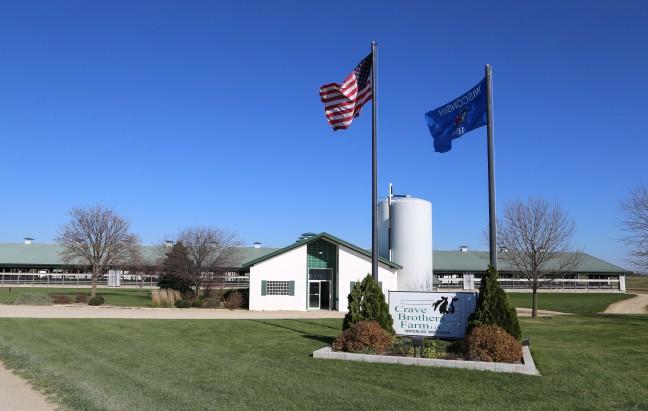The University of Wisconsin and state legislators have been developing new technology, addressing profit losses and encouraging agricultural diversity to combat issues faced by farmers.
Agricultural educator Jamie Pfaff of UW Extension Jackson County said farmers are leveraging their farm to get loans, selling off or renting parts of their farm, diversifying crops and investing their time in multiple enterprises such as livestock.
Wisconsin’s dairy prices have been declining for the past few years. Issues caused by dropping prices have only been exacerbated by China no longer purchasing certain crops such as cranberries, ginseng and whey.
According to Reuters, China also placed tariffs on agricultural goods in response to President Trump’s imposed tariffs on Chinese goods. Chinese tariffs on U.S. soybeans caused the Trump administration to compensate farmers for two years with a combined spending of as much as $28 billion.
Pfaff said farmers can survive the trade war as there will always be a need for agriculture because people need to eat.
“It’s just a matter of coming out on the other side and how they will be staged to take on the market once prices do rise,” Pfaff said.
Another is climate change. Climate change is affecting farmers ability to maintain fields. Increasingly warmer weather and precipitation erodes soils, creates favorable conditions for pests and pathogens, and degrades the quality of stored grain. In some cases, heavy rain causes crops to be planted late, which happened this year.
Tar spot, a disease that affects corn, has spread across 24 counties in the Midwest as well. This includes five counties in Wisconsin.
The name refers to the black dots that appear on leaves, imitating tar spots. This disease can spread quickly in wet environments, and the window of time to treat it can pass quickly. This results in crop losses.
Despite all of this, solutions are being constructed and implemented.
Smartphone apps are helping farmers improve farming techniques. App uses range from detecting white mold in soybeans, tracking manure application, calculating crop price adjustments and more.
“The UW Extension is constantly working on new apps and decision making tools,” Pfaff said.
The UW Cooperative Extension offers spreadsheets outlining enterprise budgets to help farmers track incomes and losses. Budgets are drawn out for a variety of crops, dairy and livestock options. This gives farmers a better idea of where to invest or pull back money, Pfaff said.
The future of farming is hard to determine, Pfaff said. The effects on farmers will need to be looked at on a case by case basis. Not all farmers will have debt to pay or experienced as much loss as others.
The U.S. Department of Agriculture provides farmers financial assistance through the market facilitation program. The farmers aren’t being paid for their profit losses, but rather to help them get back on their feet, Pfaff said.
State legislators are working on “Our Farms, Our Future,” a bipartisan legislative package that is composed of three bills. LRB 1388 will provide student loan assistance to beginning farmers, LRB-1123/2 will create two new positions in the UW System to help farmers create succession plans and LRB-0149/4 provides a grant to help farmers diversify.
State Rep. LaKeshia Myers, D-Milwaukee, who is co-sponsoring LRB-1123/2 and LRB-0149/4, said anyone can submit a proposal and the best ideas will receive the Small Farm Diversity Grant provided by the legislation. It aims to help farmers on less than 50 acres diversify either through starting a new operation or adding a new agricultural product.
Grants will be a maximum of $50,000 each and the total appropriation is $500,000. Receivers will be required to pay back if they don’t comply with the terms of the grant, according to an email from Myers’ office.
Myers offered a suggestion for farmers looking to diversify.
“As far as creating new opportunities and jobs, we have to look to the hemp industry,” Myers said. “There are several different products you can take from hemp.”
State must make it easier for industrial hemp farmers to manufacture CBD products
LRB-1123/2 will provide the UW System with two new full-time staff positions. One will be in the Center for Dairy Profitability and the other will be in the Extension Farm Management Program. There are complexities that exist around passing a family farm down to successors, and these new staff will help families with succession planning, according to an email from Myers’ office.
There is a need for a collaborative partnership between rural and urban workers because fewer people are living in rural areas than before, Myers said. The representative suggested bringing aspects of farming to the city, such as processing plants, to sustain the business.
“Farming and agriculture is one of the greatest endeavors one could undertake,” Pfaff said. “I know that these are really challenging times but I hope farmers remain proud.”















